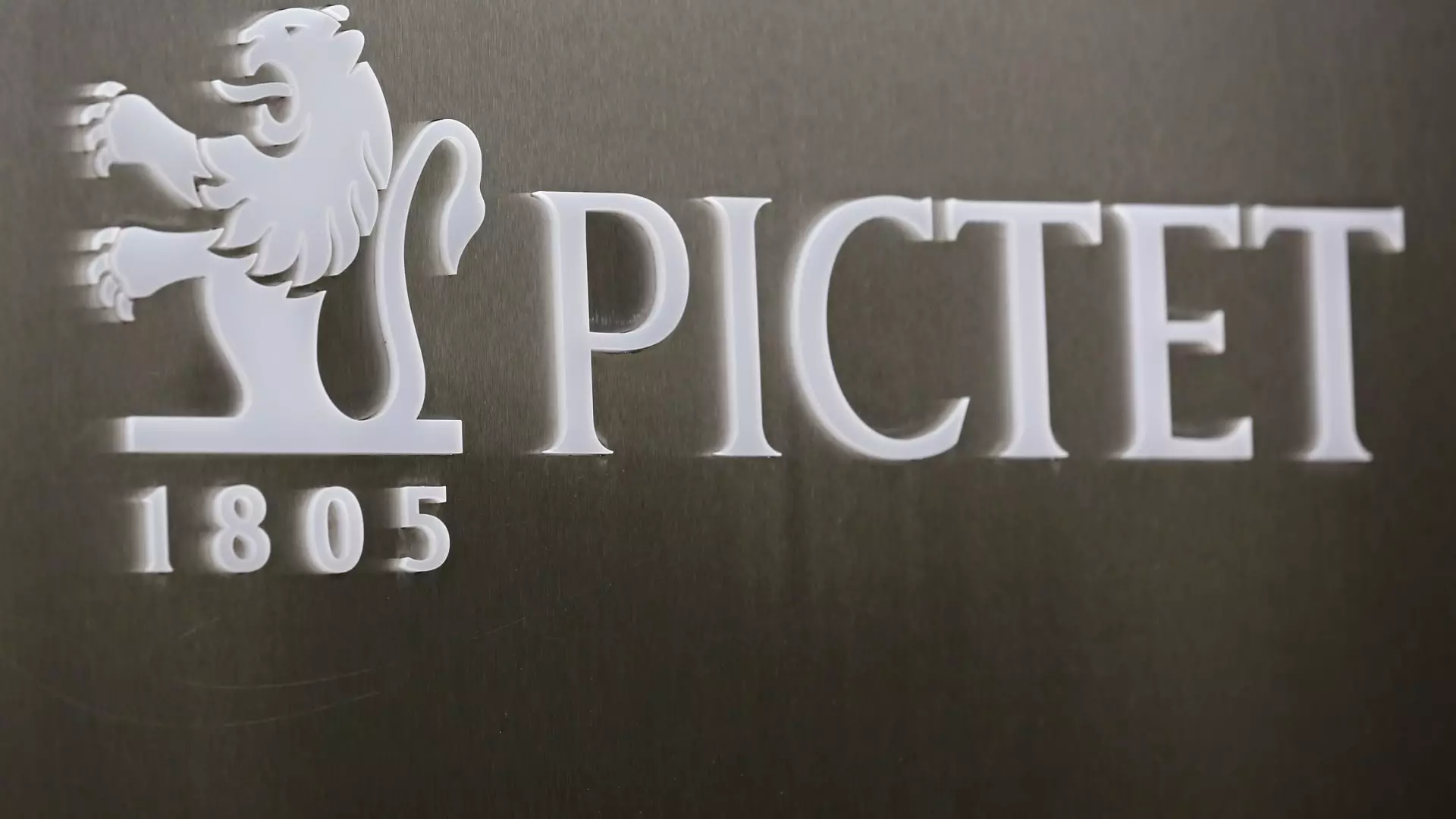Switzerland is renowned for its banking prowess, but even the most prestigious institutions can succumb to ethical pitfalls. In a shocking admission, Banque Pictet, the private banking division of the esteemed 218-year-old Pictet Group, admitted to conspiring with U.S. taxpayers to conceal a staggering $5.6 billion from the Internal Revenue Service (IRS). With the Department of Justice (DOJ) announcing the details of this case, it has become clear that Banque Pictet orchestrated a massive tax evasion scandal that spans over six years.
As part of the agreement with prosecutors, Banque Pictet will face the consequences of its actions. The bank is expected to pay around $122.9 million in restitution and penalties. This hefty financial burden reflects the severity of the deception perpetrated by the bank. During the time frame of 2008 to 2014, Banque Pictet maintained 1,637 accounts on behalf of American clients who collectively evaded approximately $50.6 million in U.S. taxes. These accounts were part of the bank’s management of roughly $20 billion in total assets from U.S. taxpayers.
Despite Banque Pictet’s role in facilitating widespread tax evasion, the bank has managed to strike a deferred prosecution deal with the Justice Department. If the bank adheres to the terms of this agreement, it will receive a three-year deferral of prosecution, followed by the dismissal of a charge of criminal conspiracy to defraud the IRS. However, this leniency is contingent upon the bank’s cooperation with ongoing investigations into other hidden bank accounts.
Seeking justice amidst financial malfeasance, Damian Williams, U.S. Attorney for the Southern District of New York, emphasized the importance of collaboration among companies, financial institutions, and the DOJ. Williams urged entities to proactively report any wrongdoing before facing potential legal consequences. This case underscores the continued commitment of the DOJ to root out financial misconduct.
In light of Banque Pictet’s admission and subsequent agreement with the DOJ, Pictet Group released a statement acknowledging the situation. The statement highlights the extensive cooperation of Pictet Group with U.S. authorities and emphasizes its adherence to Swiss law. While expressing satisfaction with the resolution of this matter, Pictet Group also affirms its commitment to ensuring its clients fulfill their tax obligations.
The prosecution revealed the extent to which Banque Pictet employed various tactics to hide its clients’ undeclared accounts. The bank’s modus operandi involved holding clients’ account-related mail within the bank itself instead of mailing it to the U.S., ensuring that documents related to these accounts remained beyond the reach of U.S. tax authorities. Additionally, Banque Pictet established and managed offshore entities that served no legitimate business purpose; their sole function was to help U.S. taxpayer-clients evade taxes by concealing offshore accounts and assets from U.S. authorities.
During the relevant period, the Pictet Group operated a staggering 529 offshore entities for the accounts in question. These entities further bolstered the bank’s ability to assist tax-evading clients in keeping their undeclared funds offshore. The bank facilitated this process by transferring funds from undeclared accounts to accounts seemingly held by non-U.S. clients. These accounts, however, were still effectively controlled by the U.S. taxpayer-clients through the use of “fictitious donations,” as identified by the DOJ.
The case of Banque Pictet’s tax evasion scandal serves as a powerful reminder that even venerable financial institutions can succumb to unethical practices. The repercussions of this revelation reverberate beyond the immediate financial penalties imposed on the bank. It calls for increased transparency and accountability within the banking industry as a whole. Only with the diligent pursuit of justice and the cooperation of both financial institutions and governmental bodies can we hope to uphold the integrity of the global financial system.

Leave a Reply